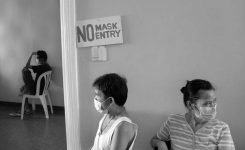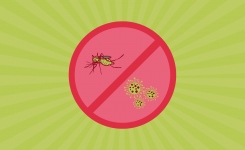Blog
Myths vs. Facts: The Coronavirus Disease (COVID-19)
Panic and confusion, as history would show us, have always been obstacles in trying to contain disease outbreaks. And in the era of fake news and clickbaits, misinformation spreads almost as fast as the virus itself.
It has become so easy to share sensational news articles and alarming statistics on our social media sites that it has become increasingly difficult to sort through the real ones from the fakes. Dr. Tedros Adhanom Ghebreyesus, the head of the World Health Organization, coined the spread of false information on coronavirus as an “infodemic”. The organization considers the fight against fake news as a significant front in trying to control the coronavirus. At the moment, they are working with major websites such as Facebook, Twitter, Google, Pinterest, and TikTok to try to filter and minimize the sharing of fake news. Still, it is predicted that the “infodemic” will last as long as the actual disease.
To aid in the fight against fake news, we gathered some of the most popular myths circulating around the web and did some much needed mythbusting.
1. MYTH: The virus will definitely die off during the summer.
FACT: While viruses often subside during warm weather due to their “seasonality”, experts are still unsure if the coronavirus will follow the same patterns. Maciej F. Boni of Penn State University noted that while we have developed immunity for the common viruses, we are all still very vulnerable to the COVID-19. “We’re not off the hook just because we’re getting to the warmer weather,” he explained.
2. MYTH: Taking a hot bath will help prevent the coronavirus disease.
FACT: The body temperature will remain at around 37°C.regardless of your bath’s temperature. It will not help you avoid the virus. However, regular bathing and other common hygienic practices can increase your chances greatly.
3. MYTH: Items manufactured in China or in any country with reported COVID-19 cases can be carriers of the virus.
FACT: Depending on the surface, the virus can stay on an object from a few hours to several days. By the time the transported goods have been delivered, significant time would have already past and it would have already been exposed to various conditions and temperatures. The virus would have most likely already be gone at that point. If there are objects that you are still suspicious of, feel free to disinfect them thoroughly.
4. MYTH: Ultraviolet disinfection lamps can kill the coronavirus.
FACT: UV radiation can cause skin irritation. Do not under any circumstances use UV lamps as a means of sterilization.
5. MYTH: Spraying alcohol or chlorine all over your body can kill the COVID-19 virus.
FACT: The virus infects you internally. Spraying yourself with these substances would not be effective in killing the virus if it has already entered your system. With the right usage, these are advisable disinfectants for surfaces. They could, however, be harmful if they came in contact with certain body parts like the eyes or mouth.
6. MYTH: Vaccines from pneumonia can protect you from the coronavirus.
FACT: The coronavirus is new and requires its own vaccine which is currently still in development. Vaccines for pneumonia like the pneumococcal vaccine and Haemophilus influenza type B (Hib) do not provide protection from the virus. It is still advisable to have them to secure your own respiratory health.
7. MYTH: Eating garlic is an effective way to ward off the coronavirus.
FACT: Despite having some antimicrobial properties, garlics have no proven capability to aid in protecting people from the COVID-19 virus.
8. MYTH: The coronavirus can be treated with antibiotics.
FACT: Antibiotics only work for bacteria, not viruses. It should not be used as a means for prevention or treatment.
9. MYTH: There is an already known cure/vaccine for the coronavirus.
FACT: As mentioned before, researches are still being conducted in finding the definitive cure for this new virus. The vaccines are also still in their development stage.
In times like this, let’s try to not let the overwhelming amount of news online to misinform us. Refrain from sharing any news without doing your own fact-checking and research. Remember to rely only on reputable sources like the WHO and the DOH for more news updates on the coronavirus.
Sources:
How experts are fighting the Coronavirus ‘infodemic’ – World Economic Forum
Will Warm Weather Slow Down the Coronavirus? Here’s What Experts Think – Health.com
Coronavirus disease (COVID-19) advice for the public: Myth busters – World Health Organization
Q&A on coronaviruses (COVID-19) – World Health Organization








